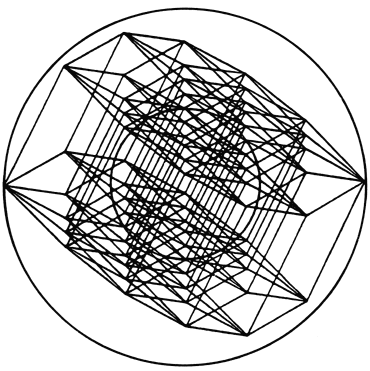 ;
;
| NoteComputer | 
|
| Modified | DDT |>| TUE.OCT,981020,10:23-4 | | CoSy/Home ; CoSy/Current | © Coherent Systems Inc . |
"
http://inferno.bell-labs.com/cm/cs/who/bwk/interps/pap.html
this is a benchmark by brian kernighan
investigating scripting languages - perl, awk, tcl, scheme
and interface-building languages - limbo, vb and java.
the 9 tests are loops, text-processing and stdio.
[we really are different. we avoid all these. a full
implementation of an RDBMS is a better benchmark.]
even though k is not designed for
loops -- rare in k-applications, e.g. none in kdb
text-processing -- we prefer data-processing -- binary is better
stdio -- we prefer mmap to read/write
k is faster (sum of times)
k(32) perl(95) java(300) tcl(1400+)
[k is much faster than c on strings and memory management.]
k is shorter (lines of code)
k(9) awk(66) perl(96) tcl(105) scheme(170) vb(200) java(350)";
/ do one million increments on initial state 0
\t 1000000(1+)/0
/ ackermann's (k2.3, perl etc. have short stack)
\t { :[ ~x ; y+1 ; ~y ; _f[x-1;1] ; _f[x-1 ; _f[x;y-1] ] ] }[3;7]
/ array indexed forwards and backwards
\t x(x;|x:!200000)¨
/ while(x>count string) join chop join ... on "abcdef"
f:{(x>#:){(i _ x),(1+i:_.5*#x)#x:,/("123";x;"456";x
"789")}/y}
\t do[10;f[500000;"abcdef"]]
/ lookup hex strings in decimal strings
\t {+/("0123456789abcdef"16_vs'!x)_lin$!x�
`f 0:(30000 _draw 300)#\:"king "¨/ james
/ write read stdio
\t `f 0:0:`f¨
/ (lines;words;chars)stdio
\t (#:;+/(+/1<':" "=)';+/#:')@\:0:`f
/ write reverse read stdio
\t `f 0:|0:`f ¨¨
`f 0:100000#,"-123.456"¨/ some numbers
/ sum float-from-ascii stdio
\t +/0.0$0:`f ¨
/ approximate times on 100MHZ pentium (32MB)
t:( 2 10 .15 2.2 1 3.5 3.2 4 5.7¨/k
.3 1 .8 5 25 80 50 125 15¨/java
3 40 8 1 6 4 15 8 10.¨/perl
100 1000 100 20 12 80 15 70 50. )¨/tcl
+/'t
\
\t {`show$,$i:0;do[x;s0,:$i+:1] ¨¨/ gui text
 ;
;
| NoteComputer | 
|